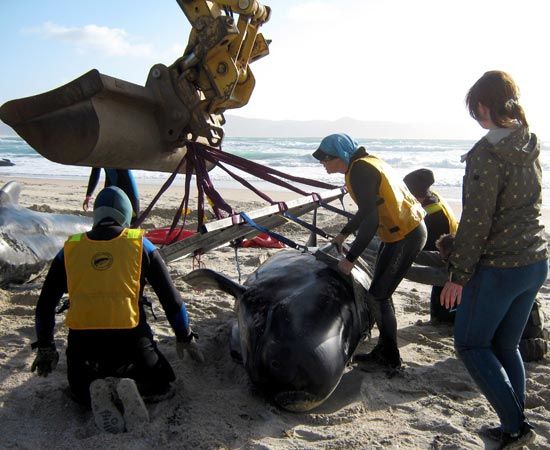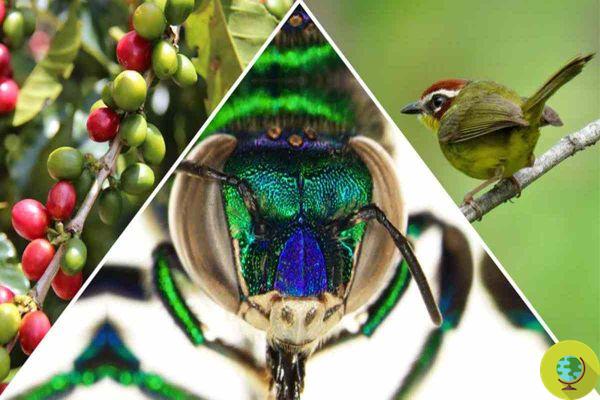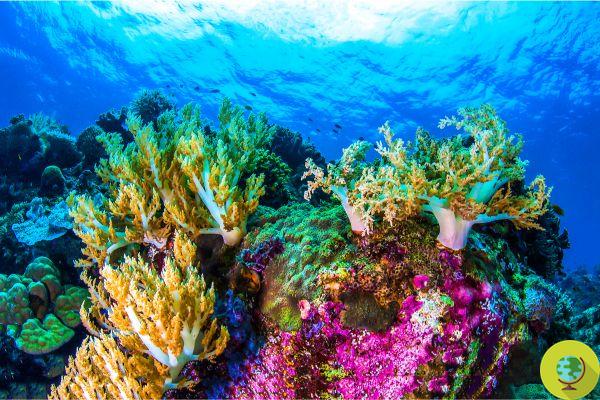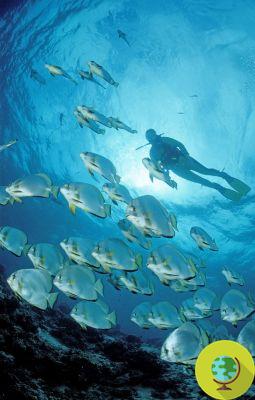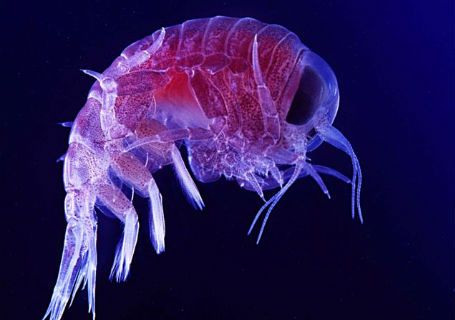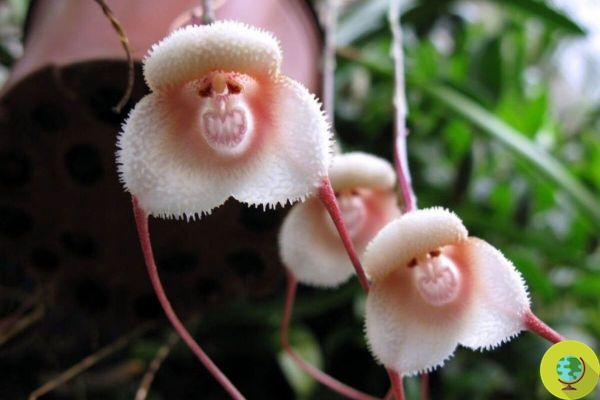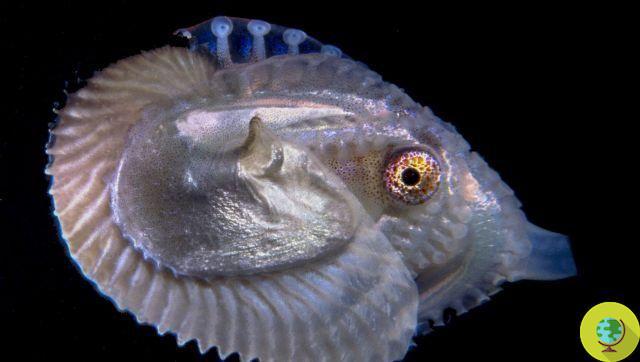
The Argonauta argo, the "most romantic" mollusk because it evokes adventure and sea travel, won the 2021 Mollusc world award
He is about to end up run over, his mother saves himThe Argonauta argo has been defined as the “most romantic” mollusk because it evokes long journeys by sea and a spirit of adventure. And it won the 2021 Mollusk World Award
The Argonaut Argonauta is the World Mollusk of the Year 2021. Candidate from "Anton Dohrn" Zoological Station - National Institute of Biology, Ecology and Marine Biotechnology, the mollusk obtained 7888 votes from fans from all over the world, beating the runner-up by more than 2 thousand votes.
"The sequencing of the complete genome by the LOEWE Center for Translational Biodiversity Genomics (TBG) of the Senckenberg Research Institute and Natural History Museum in Frankfurt will offer job opportunities to different research groups interested in particular clusters of genes involved in different aspects of this species ”, Explains Fabio Crocetta, marine biologist of the Department of Integrated Marine Ecology of the Anton Dohrn Zoological Station, who recently found a specimen of Argonauta argo in the Gulf of Naples during a routine analysis of ancillary species in bluefish fishing. "Sequencing - continues the researcher - can also offer the opportunity to make comparisons with related species from a phylogenetic point of view or similar behavior or lifestyle".
The Anton Dohrn Zoological Station confirms itself as a world excellence in the field of research for having brought a species of the Mediterranean Sea to obtain this result.
The Argonauta is a pelagic octopus with ancestral features that has fascinated naturalists, writers and the general public since ancient times. Argonauta shells, also depicted in pottery dating back to 3000 BC, were often used as ornaments by dancers and women. Originally described by the Mediterranean Sea, the Argonauts were once believed to use their large pair of dorsal arms as "sails or oars" and their "shells" as ships to float on the surface of the ocean, just like rugged "navigators". Today we know that the species has a pelagic lifestyle, that is, it lives in the open sea (unlike most of the cephalopods), and that, although it is possible to meet it in tropical and subtropical waters around the world, the encounter with humans it is a real rarity.
In addition, the Argonaut has been the focus of several poems and books, including the novel Twenty Thousand Leagues Under the Sea by Jules Verne. The most extraordinary thing is linked to the fact that these organisms have a very short life in the face of a highly developed intelligence, it is a question of understanding how they manage to become so intelligent in such a short time.
The species is original for numerous reasons. It is, first of all, characterized by an extreme sexual dimorphism, with the females appearing as large octopuses and growing up to 30 centimeters and the males generally much smaller up to 2 centimeters. The females also have extra wide arms (the famous “oars or sails”) which secrete the shell, a finely forged hydrostatic structure used not only to obtain a neutral buoyancy, but also to protect and retain the eggs. Furthermore, the Argonauts are voracious predators and use their tentacles to grab the prey and drag it towards the mouth, where they bite it, injecting the venom produced by the salivary gland. They are also capable of attacking and devouring prey larger than themselves, such as jellyfish.
The Argonauts belong to a basal group of the order Octopoda, and may retain some characteristics of ancestral octopuses. Their shell has a particular structure, entirely calcitic and devoid of septa chambers, unlike all the other cephalopods with a shell, including Nautilus pompilius and Spirula spirula. Finally, the shell is not produced by the mantle, which is usually responsible for the formation of the shells, but by the two modified tentacles. This trait is not present in any ancestor - current or past - and presumably constitutes a unique evolutionary innovation of the genus Argonauta.
Source: Anton Dohrn Zoological Station












